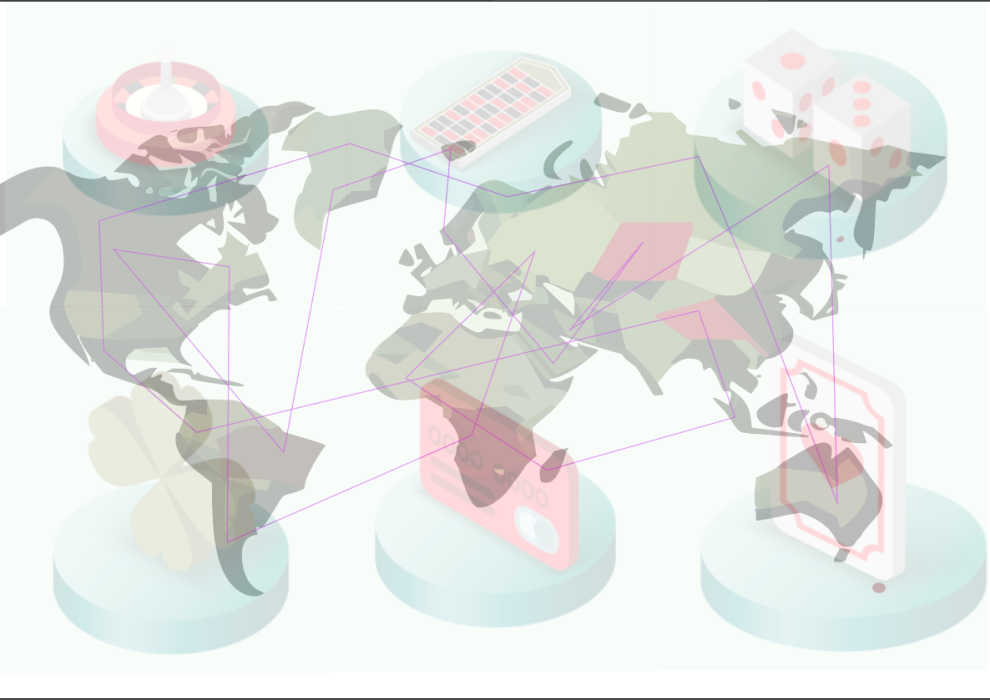Multi-Jurisdictional Licensing and the iGaming Industry
March 19, 2024

Multi-Jurisdictional Licensing and Gaming Industry
We at Lazarus Legal have been actively involved in the gaming industry for well over two (2) decades and we have adapted to the changing legal landscape, particularly in online gaming (iGaming). From our vast experience, we would not imply that the task of obtaining a gaming license is neither straightforward nor uncomplicated. On the contrary, obtaining a gaming license in a reputable jurisdiction has its unique set of challenges. In the past, operators could secure a single license and offer its services globally from a centralized location. In the modern gaming industry, there are increasing complexities of obtaining and maintaining a gaming license, as regulatory frameworks have evolved, operators now face a more intricate landscape with multiple jurisdictions imposing their own local licensing requirements and compliance standards leading to an upsurge of jurisdiction-specific legislation.
Challenges in the changing legal landscape:
- Regulatory Expansion: The growth of regulations stems from various factors, including efforts to protect players, retooling by disinterested jurisdictions who have not kept up with the changing legal landscape, and governments seeking to enhance their tax revenues and to promote job growth and other economic benefits.
- Jurisdiction Specific Licensing: As a result of global Regulatory expansion, the requirements of obtaining jurisdiction specific licenses or locally required licenses and permits has become a requirement and reality for many online operators. As an example of the foregoing, in Canada the Criminal Code of Canada (R.S.C., 1985, c. C-46, sections 197-207) is the applicable governing law for gambling and betting. However, only the provinces and territories are authorized to offer online gaming and betting, and each provincial gaming authority has enacted their own laws and regulations related thereto. Jurisdiction specific legislation like the Gaming Control Act, 1992 (S.O. 1992, c. 24) (GCA) and its associated Regulations, which are administered by the Alcohol and Gaming Commission of Ontario (AGCO) in the province of Ontario, Canada, requires foreign operators and suppliers to register under the GCA prior to filing an iGaming license application, as well as, enter into a commercial operating agreement with the AGCO’s subsidiary iGaming Ontario (iGO), and for operators to file a separate application for each distinct online gaming site. Therefore, targeting specific markets like the province of Ontario, has led to the dissemination of jurisdiction-specific licensing requirements for any online operators to enter the Canadian market. While a Multi-Jurisdictional License may have once granted access to the entire Canadian market, under Ontario’s current iGaming licensing regime, only operators that are licensed through the iGO will be able to offer their services to Ontarians only.
- Multi-Jurisdictional Licensing: Online Gaming operators now commonly need local licenses and permits and to abide by compliance measures in multiple jurisdictions to pursue their global ambitions, which has led to increased operational complexity. We will further discuss multi-jurisdictional licensing later in this article.
Responses to the changing legal landscape:
- Adaptable Offshore Jurisdictions: Certain offshore jurisdictions like Malta, the Isle of Man, Alderney, the Kahnawake Mohawk Territory, and the Tobique First Nation (in New Brunswick, Canada) offer a centralized licenses that meet the requirements of multiple jurisdictions. These foregoing jurisdictions offer established and recognized gaming regulations, an efficient yet thorough licensing process and rigorous technical standards, which make these jurisdictions attractive destinations for worldwide compliance. Each jurisdiction has its set of pros and cons and understanding which jurisdiction is right for you will require adept and knowledgeable legal advisors like the team at Lazarus Legal.
- Centralized Platforms: given their well established and recognized regulations and revered technical standards and requirements and straightforward approach to the licensing process, offshore jurisdictions like Malta, the Isle of Man, Alderney, Kahnawake, and more recently Tobique, are transitioning from being the destination to obtain a single license using a single platform, to serving as centralized localities to meet the compliance requirements within a diverse global regulatory framework.
Multi-Jurisdictional Licensing:
Multi-jurisdictional licensing and gaming refers to the process by which gaming operators obtain licenses to operate in multiple jurisdictions, which can include different countries, states/provinces, or regions with distinct regulatory frameworks. This concept commonly applies to various forms of gaming, including casinos, online gaming platforms, sports betting, and lotteries.
In many cases, gaming regulations are enforced at the state/provincial or national level, meaning that operators must comply with the laws and obtain licenses from each jurisdiction in which they wish to operate. Multi-Jurisdictional Licensing allows operators to expand their reach and offer their services to customers in different regions while adhering to the specific legal requirements of each area.
The process of obtaining Multi-Jurisdictional Licenses can be complex and time-consuming, as operators must demonstrate their suitability, financial stability, and compliance with regulations in each jurisdiction. They may need to undergo background checks, provide detailed financial information, and demonstrate their ability to protect consumers and prevent issues such as money laundering and problem gambling.
Overall, Multi-Jurisdictional Licensing in the gaming industry are essential for both gaming operators and regulators to ensure that gaming activities are conducted responsibly and legally across different regions.
While the process of Multi-Jurisdictional Licensing poses its own unique set of challenges, the use of a license that can adapt to the changing legal landscape and making the most of centralized compliance localities like the jurisdictions listed above, offers a potential response for gaming operators seeking to navigate the complexities of regulatory requirements across different jurisdictions. If you are considering the possibility of a Multi-Jurisdictional License as part of your business plan and corporate structure, we strongly encourage you to contact us at Lazarus Legal. Our team would be delighted to speak to you to discuss the suitable options relevant to your business circumstances.
In our next article we will explore the Multi-Jurisdictional Licensing regimes from a comparative basis of Malta, the Isle of Man, Alderney, the Kahnawake Mohawk Territory, and Tobique First Nation (New Brunswick, Canada).

